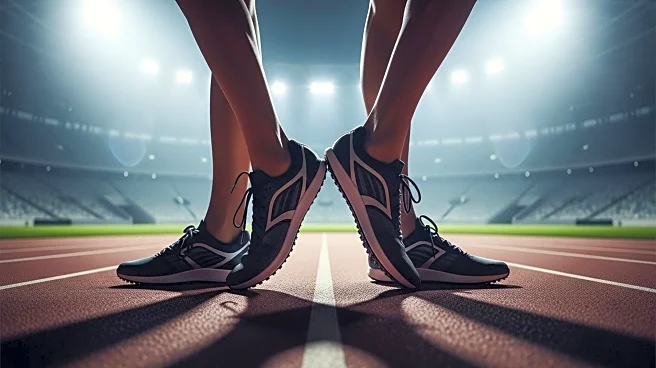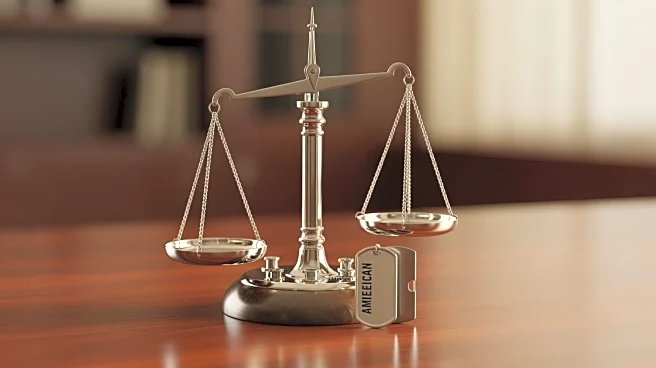What's Happening?
During the track and field world championships in Tokyo, Belgian steeplechaser Tim Van de Velde demonstrated remarkable sportsmanship by assisting fellow competitor Carlos San Martin. Both athletes faced challenges during the 3,000-meter steeplechase event, with Van de Velde falling into the water pit and San Martin struggling over the final barrier. Despite his own setback, Van de Velde turned back to help San Martin, who was visibly struggling, to cross the finish line. This act of camaraderie occurred during a qualifying race where neither athlete was in contention for a top finish. Van de Velde, a seasoned competitor with a history of injuries, empathized with San Martin's plight, having experienced similar misfortunes in past competitions.
Why It's Important?
The incident highlights the spirit of sportsmanship and mutual respect that transcends competitive outcomes in athletics. Van de Velde's actions serve as a reminder of the human element in sports, where empathy and support can prevail over individual ambitions. This gesture not only underscores the challenges faced by athletes in high-stakes competitions but also promotes a culture of solidarity and encouragement. Such moments can inspire both current and future athletes to prioritize sportsmanship alongside competitive success, potentially influencing the ethos of sports communities worldwide.
What's Next?
While Van de Velde and San Martin did not advance in the competition, their story may resonate within the sports community, potentially influencing how athletes approach competition and adversity. The focus may shift towards fostering environments that value character and support, alongside performance. This could lead to increased recognition for acts of sportsmanship in future events, encouraging athletes to uphold these values.
Beyond the Headlines
The event raises questions about the pressures athletes face and the importance of mental resilience in sports. It also highlights the need for support systems that address both physical and emotional challenges faced by competitors. As sports organizations continue to evolve, there may be a greater emphasis on holistic athlete development, encompassing both competitive skills and personal growth.









